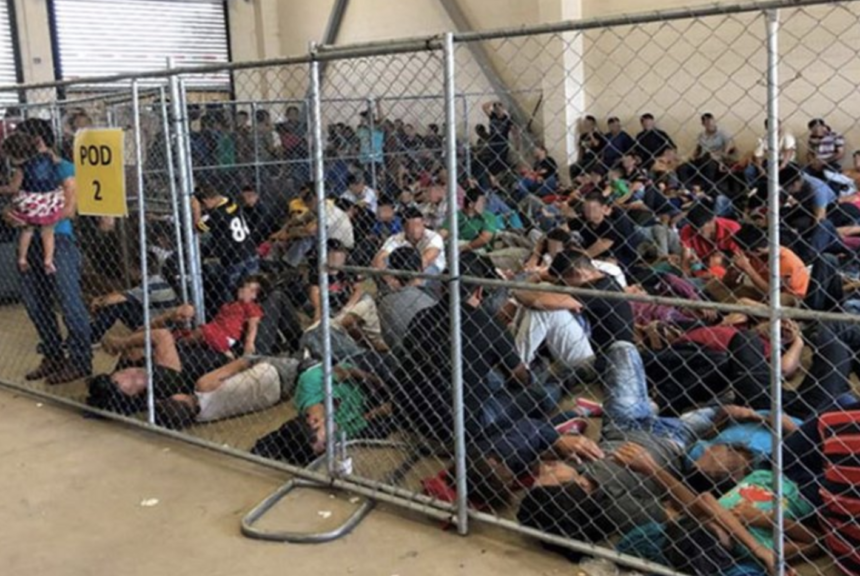House panel told deaths of children in CBP custody could have been prevented

By Farah Eltohamy/Cronkite News
PHOENIX – Medical experts told members of Congress Wednesday that the deaths of two children in Customs and Border Protection custody could have been prevented, but called the deaths “symptoms of a more extensive system that requires much improvement.”
The comments came during a House Homeland Security Committee hearing that looked at the December 2018 deaths of Jakelin Caal Maquín, 7, and Felipe Gómez Alonzo, 8, from sepsis and a severe bacterial infection.
The Department of Homeland Security determined the children died of natural causes. But witnesses said the children did not have to die.
“Death by natural causes does not mean that death was inevitable, and lack of misconduct or malfeasance, or even the great efforts several agents went to … does not absolve CBP as an agency of perpetuating systems that place children at risk for medical neglect,” said Dr. Fiona Danaher, an instructor in pediatrics at Harvard.
But Republicans on the committee were quick to jump to the defense of agents, who they said provided the best care they could.
Rep. Mark Green, R-Tennessee, who is also a physician, called Danaher’s testimony “blatantly partisan,” and said her claims that CBP facilities are unhygienic were false.
Rep. Debbie Lesko, R-Peoria, said the deaths of the children were tragic. But she said she does not understand how CBP is to blame for the deaths of migrants for whom they provided care after apprehending them as they tried to enter the country.
“We should start blaming the cartels, don’t you think?” she asked.
But Rep. Donald Payne, D-New Jersey, said it is the responsibility of the government, and its lawmakers, to do everything in their power to make sure nothing happens to migrant children.
“Now this is abominable,” Payne said during the hearing. “This is absolutely abominable what I’m listening to. Children died.”
Homeland Security Inspector General Joseph Cuffari testified that CBP officials who handled the children did not act negligently or inappropriately. But he also testified that those officials are not trained to recognize medical distress in children, which the medical witnesses said is necessary.
“The deaths of both these two children are the symptoms of a more extensive system that requires much improvement,” said Dr. Roger Mitchell, a clinical professor of pathology at George Washington University.
Danaher and Mitchell cited a number of recommendations for CBP, including a reduction in overcrowding, which Mitchell believes was a significant factor in Felipe’s death. They also called for medical professionals to be sent down to facilities in order to conduct health screenings and set up clinics for migrants.
That appeared to particularly upset Green, who claimed that the country currently faces a shortage of more than 14,494 doctors.
“Where in the world are we going to get doctors to put somebody in every single crossing site?” Green asked.
Mitchell said the recommendation is not aimed at taking away medical care from anyone, but to provide it to everyone.
“I think our job is to try to create opportunities where we can meet the goal of saving lives, wherever it exists,” he said.
Rep. Dan Crenshaw, R-Texas, called it “shameful” to put blame on CBP and immigration officers, accusing others on the committee of simply following a trend of “demonizing law enforcement.”
But a Government Accountability Office report released Wednesday found that some CBP locations were not consistently conducting health interviews and medical assessments as required by medical directors.
As one example, Rebecca Gambler, who directs Homeland Security and Justice audits for the GAO, testified that CBP failed to document how it made its decision to not offer influenza vaccines to migrants in custody, per recommendations from the Centers for Disease Control and Prevention.
Gambler also pointed out that CBP underreported the deaths of those in custody: GAO found 31 deaths from 2014 through 2019, while CBP only reported 20 deaths, the report said. And, the report noted, CBP misspent some of the $112 million in emergency funding it received in 2019 to provide care for migrants in custody, spending it instead on office supplies, dirt bikes and the canine program.
Jakelin and Felipe’s parents were not part of the virtual hearing, but they sent statements to Rep. Bennie Thompson, D-Mississippi, the committee chairman, to read before the hearing.
“I want justice. I want to know why my son didn’t receive medical care in time. I don’t want other children to go through the same thing,” Thompson read of the statement of Felipe’s father. “This is painful for me today, and it’ll be painful for the rest of my life. Every night I asked myself why my son didn’t receive medical attention in time. Felipe’s treatment was inhumane.”